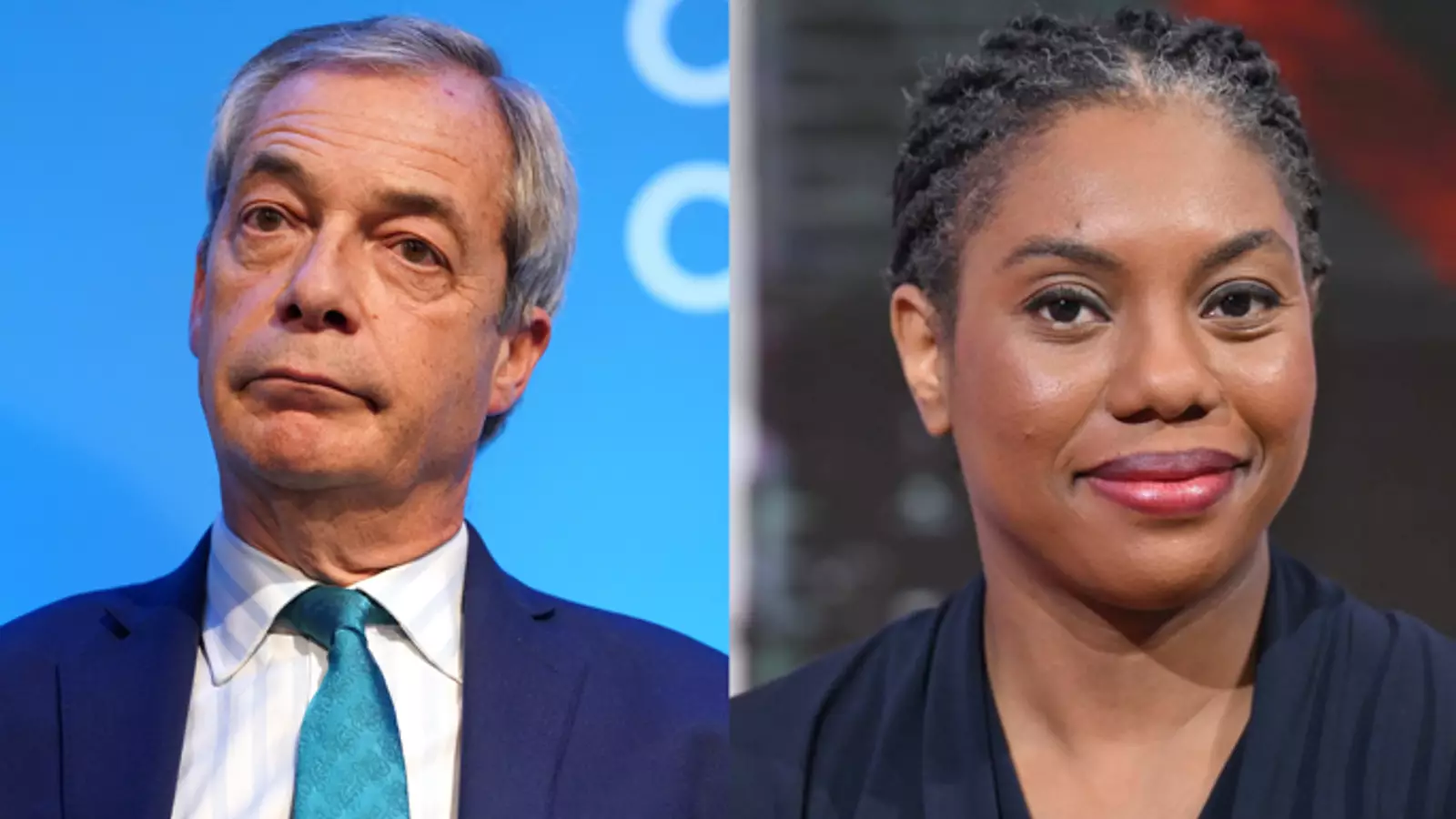Recent polling data has unveiled a significant shift in the political dynamics within the United Kingdom, particularly concerning the Conservative Party and Nigel Farage’s Reform UK. A YouGov poll commissioned by Sky News reveals that the Conservatives are trailing Reform UK across a suite of critical indicators—a troubling sign for the Tories as they navigate the current political climate. This article delves into the implications of these polling results, examining voter sentiments towards both parties, the potential for future electoral shifts, and what this means for Britain’s political landscape.
The perception of the Conservative Party has taken a substantial hit, as illustrated by the YouGov poll results. Only 10% of voters perceive the Tories as strong, contrasting sharply with the 61% who view them as weak. Such numbers highlight a concerning trend for a party traditionally characterized by notions of strength and reliability. In stark contrast, Reform UK fares better, with 31% of respondents labeling it as a strong party, while only 27% see it as weak. These ratings reveal a troubling narrative: the Conservatives, once a dominant force in British politics, are struggling to maintain a positive image among voters, while their newer rival appears to be channeling a sense of vigor and purpose.
The notion of leadership appears to be another significant differentiator between the two parties. When asked about the clarity of vision among the Conservatives, only 18% of respondents believe the party has a clear sense of direction—a fact that underscores significant fragmentation within its leadership. On the contrary, Reform UK enjoys a more favorable perception in this arena, with 49% of voters asserting that it has a clear sense of purpose. This discrepancy demonstrates that while the Tories grapple with their identity and future direction, Reform UK has effectively capitalized on this vacuum to propose itself as a credible alternative.
Trust remains a critical component in voters’ choice of political allegiance. The YouGov poll indicates that only 11% of voters regard the Conservatives as trustworthy, while an overwhelming 65% label them as untrustworthy. While Reform UK also struggles to establish a firm foundation of trust, they still perform better: 19% trust the party, while 52% do not. The relatively minor difference underscores the prevailing distrust in both parties, hinting that reform in leadership and policies is critical for either to regain footing.
The dynamics of party loyalty are also evolving. The polling data suggests that Conservative voters who are considering a shift to Reform UK are more prevalent than vice versa. Among those who voted for Reform UK in the last election, a significant 46% state they would never consider voting for the Conservatives again. Conversely, only 36% of Conservative voters from the previous election expressed similar aversion towards Reform UK. These statistics imply a troubling trend for the Tories: their voter base may be more susceptible to desertion than anticipated, particularly given the allure of Reform UK’s emerging narrative.
The electoral landscape in the UK is undergoing a transformative phase, as evidenced by the recent polling data. While the Conservative Party grapples with internal disarray and declining public perception, Reform UK is positioned to capitalize on these weaknesses. The party’s ability to establish a stronger public image, characterized by trust and clarity of purpose, will be crucial as electoral contests loom on the horizon. As British voters seek alternatives amidst dissatisfaction with established parties, Reform UK may very well redefine traditional voting patterns, potentially ushering in a new era of political engagement in the United Kingdom. The implications of this evolving scenario are significant, not only for the parties involved but for the overall health of British democracy itself.


Leave a Reply